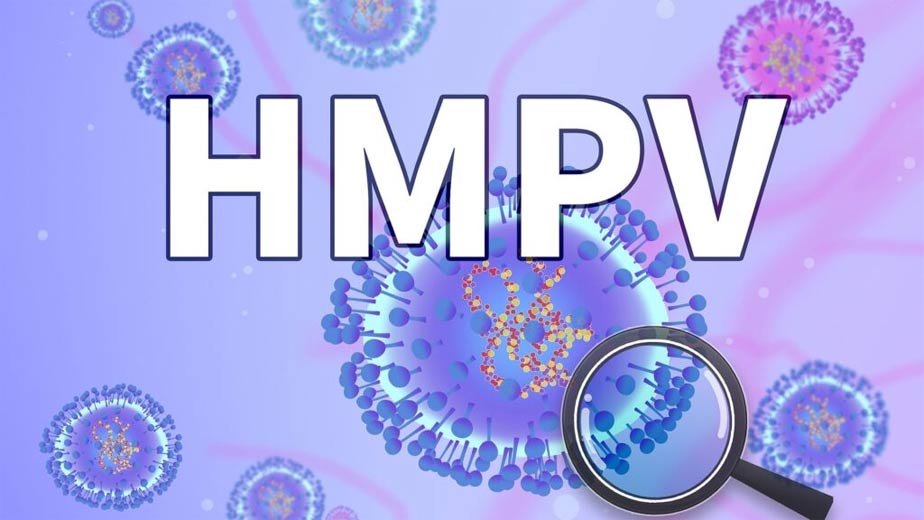What is HMPV virus?
Human metapneumovirus ( HMPV ) is a virus that often causes cold-like symptoms. You may have a cough or wheezing, a runny nose, or a sore throat. Most cases are mild, but young children, adults over 65, and people with weakened immune systems are at higher risk for serious illness. HMPV is very common — most people get it before they turn 5.

What is HMPV and how is it spread?
HMPV is a virus that causes a mild upper respiratory infection - virtually indistinguishable from the flu.
First detected in the Netherlands in 2001, the virus spreads through direct person-to-person contact or when someone touches a surface contaminated with the virus. Symptoms for most people include cough, fever, and nasal congestion.
Very young children, including children under two years old, are most vulnerable to the virus, along with people with weakened immune systems, including the elderly and those with late-stage cancer, according to Hsu Li Yang, an infectious disease specialist in Singapore.
If infected, "a small but significant proportion" of immunocompromised people develop more severe disease, in which the lungs are affected, with symptoms of wheezing, difficulty breathing and laryngitis.
' Many people will need hospital care, with a small percentage at risk of dying from the infection ,' said Dr. Hsu.

Why are cases increasing in China?
Like many other respiratory infections, HMPV is most active in late winter and spring – some experts believe this is because the virus survives better in cold weather and it spreads more easily from person to person because people are more likely to be indoors.
In northern China, the current HMPV outbreak coincides with a period of low temperatures expected to last until March.
In fact, many countries in the northern hemisphere, including but not limited to China, are seeing an increase in HMPV incidence, says Jacqueline Stephens, an epidemiologist at Flinders University in Australia.
' While this is concerning, the increase in incidence is likely to be a normal seasonal increase in winter ,' she said.
Data from health authorities in the United States and the United Kingdom shows that those countries have also seen a rise in HMPV cases since last October.
Is HMPV the same as Covid-19? How worried should we be?
Experts say fears of a Covid-19-style pandemic are unwarranted, noting that pandemics are often caused by new pathogens, but not HMPV.
HMPV is present globally and has been around for decades. This means people around the world have 'some level of immunity from previous exposure,' Dr. Hsu said.
" Almost every child will be infected with HMPV at least once before their fifth birthday, and we are likely to continue to be reinfected many times throughout our lives ," says Paul Hunter, professor of medicine at the University of East Anglia in the UK.
" So overall, I don't think there are any signs at the moment of a serious global problem ."
However, Dr. Hsu recommends taking standard, general precautions such as wearing a mask in crowded places, avoiding crowds if possible if a person is at higher risk of severe illness from a respiratory virus infection, practicing good hand hygiene, and getting a flu vaccine.
How long does HMPV virus last in humans?
Mild cases of HMPV in humans usually last a few days to a week. If you have a severe case, it may take longer to feel better. You may also have lingering symptoms, such as a cough that doesn't go away.
How to take care of yourself when infected with HMPV virus?
You can control mild, cold-like symptoms of HMPV at home by:
- Drink plenty of water to prevent dehydration.
- Use over-the-counter (OTC) medications such as pain relievers, decongestants, and cough suppressants to help relieve your symptoms. Don't give medications to children without consulting your pediatrician—some medications approved for adults aren't safe for children.
Contact your healthcare provider if:
- You or your child has symptoms of a respiratory infection and an underlying condition that puts you at higher risk of severe illness.
- Your or your child's symptoms do not improve within a few days or a fever lasts more than three days.
You should read it
- What is the RSV virus?
- Rumors regarding the new Corona virus (2019-nCoV) and WHO answers
- 3 ways to identify a Mac infected with a virus
- New virus outbreaks occur via USB
- China says it will test the corona virus vaccine in April
- This is the person who created the world's first computer virus
- Distinguishing corona virus infection and the common cold, pay attention to this
- Detect dangerous macOS virus developed by Chinese hacker group
- The shortcut virus removal has never been this simple
- China is threatened by computer 'super virus'
- Destroy the autorun virus in USB or on PC with 4 simple ways
- What is Adrozek Virus? How to protect yourself from Adrozek virus
